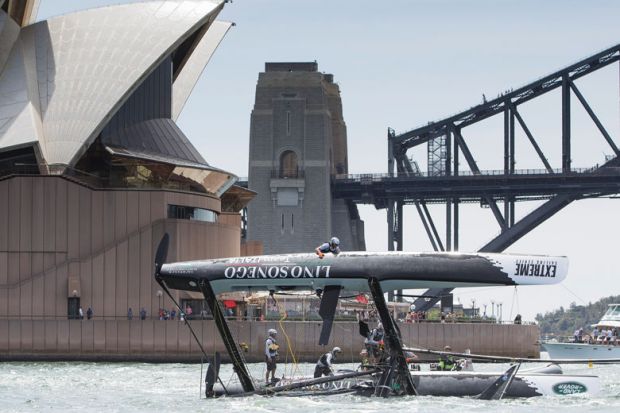Australian higher education faces “sectoral failure” as top universities alleviate their pandemic losses by poaching domestic students from lower-tier institutions, outgoing Australian Catholic University vice-chancellor Greg Craven has warned.
Professor Craven, who retired this month, said that Covid-19 would generate more intense competition between universities than the past decade’s demand-driven funding system. This would jeopardise “working universities” in the suburbs and regions, as elite institutions targeted their students.
He said that observers were rightly worried about pandemic-induced impoverishment of research-intensive universities that relied heavily on income from overseas students. “But it’s much worse than that,” he told Times Higher Education.
“There’s the prospect not only of partial failure but of failure across the board. By trying to alleviate their own distress, the top part of the sector will transmit the problem into the lower and middle parts of the sector.”
Professor Craven said the “most plausible scenario” was that elite institutions would lower their admission requirements to attract business and law students normally embraced by lower-ranked universities.
This would absorb spare capacity in top-flight business schools denuded of international students by pandemic-related travel restrictions. And it could be done with no impact on domestic enrolment caps, because universities would eschew subsidies for business and law places after they plunged from A$2,237 to A$1,100 (£1,274 to £627) under this year’s funding changes.
Instead, universities would rely solely on tuition fees, which have risen from A$11,355 to A$14,500. “You would see an absolute attack on business and law schools from some high- and middle-tier universities, and that could have a spectacular effect on the bottom line of universities that are already vulnerable,” Professor Craven said.
“Even pre-Covid, some regional [and] outer metro [universities] were sailing close to non-viability. If they were to find their business and law schools decimated, they would be in a disastrous position.”
Commentators expressed scepticism about such a scenario. University of Melbourne professorial fellow Warren Bebbington said that elite universities would be wary of the reputational impacts of lowering their entry standards, or of producing unemployable graduates.
“You can always find demand for law among school-leavers, but…we’re producing too many law graduates. A university ought to be concerned about whether its graduates are getting placed in their field of choice,” said Professor Bebbington, former vice-chancellor of the University of Adelaide.
Australian National University policy expert Andrew Norton said that while top universities might undertake “modest expansion” of domestic business and law enrolments, this would pose little risk to less prestigious institutions experiencing “a recession-induced spike in total demand”.
He said that domestic demand for Australia’s top-tier institutions was not as strong as many imagined. In any case, elite universities would resist accepting A$14,500 for business degree places that could net them A$40,000 from international students once travel bans were lifted.
“The reality is that A$14,500 is not going to deliver massive profit margins – it will keep some staff employed and buildings in use, but this is not going to generate the kind of money they need to keep their research going,” he said. “To some degree it is a competitive market, but non-commercial reasons around prestige [will] constrain their behaviour.”
Professor Craven argued that universities might be able to disguise their admission of school-leavers with modest Australian Tertiary Admission Ranks (ATARs). Some universities have partly or completely overlooked ATARs for this year’s admissions, citing the pandemic’s disruption of schooling, while others offer Covid-19 “adjustment points” that automatically boost students’ selection ranks.
“The ATARs, which have always been pretty illusionary, are almost completely illusionary this year,” Professor Craven said. “Really, they’re imaginary numbers.”
Register to continue
Why register?
- Registration is free and only takes a moment
- Once registered, you can read 3 articles a month
- Sign up for our newsletter
Subscribe
Or subscribe for unlimited access to:
- Unlimited access to news, views, insights & reviews
- Digital editions
- Digital access to THE’s university and college rankings analysis
Already registered or a current subscriber? Login








